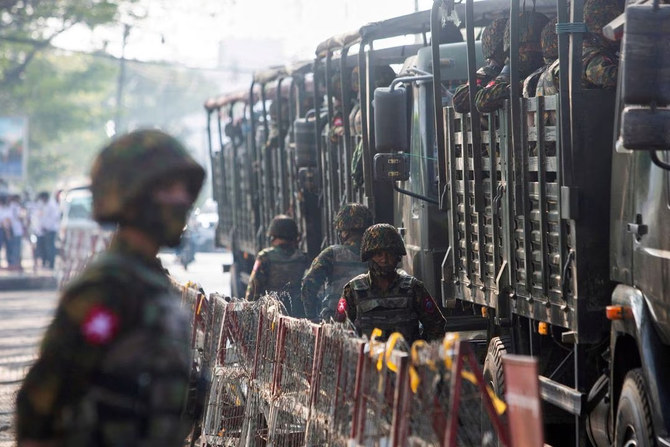Dr. Azeem Ibrahim
The civil conflict in Myanmar has been brutal since it began in 2021. Then, following the coup, in which the army overthrew the civilian government and began to persecute its leaders, violence became instrumental in state policy and a war of all-against-all soon grew up. But things are getting worse. The terrible scenes over the past week of violence against villages in the country’s north, attacked by military aircraft and artillery, are distressing to see. They portend a war that is becoming rapidly more violent and cruel.
Ever since 2021, the junta that sought power in Myanmar has faced a coalition of adversaries. Some are former allies, some are former foes, but for the moment they have united in their opposition to military rule. This has made the whole country resemble a forest glade, around which the hunters are waiting. Military patrols are not often safe. They are vulnerable to ambushes. So, the military has a solution. It has its forces fight mainly by air – attacking soft targets from the sky – and it has also begun another, even grimmer, tradition – using human shields, essentially captives, to accompany patrols so they are not attacked by local militiamen. This is savage and barbarous and it could only happen if the wider world did not pay attention and did not care.
The truth is that the junta in Myanmar is less entrenched and less powerful than it pretends. It is wholly dependent on foreign support from some quarters and oceans of indifference from all others. Campaigners and activists say that, because of the army’s reliance on air power, its military activity and violence could be significantly cut down with a few simple things, such as an international effort to deny its aircraft fuel. This could be done with sanctions or simple export bans. The schools and villages of Myanmar, which are often targets, would be the beneficiaries of such a policy. Yet it is not being done. The world simply does not care enough. Perhaps it is time to care. While many international diplomats justified their initial hesitance to acknowledge or recognize the Myanmar opposition with a sense that the army was always destined to win the war, now they have a chance to reconsider. Because it is plain that the military is less in control than the junta claims and less than its leaders would like to be.
Here are the facts. In the two years since the coup, the military has not secured the country. Instead, it has united opposition against it, with ethnic and armed groups allying with the disgraced former coalition members who shared government with the army before their ouster. This is not a situation that implies the military is successfully winning its war. And yet, even though this is true, the junta has some of the false benefits of supposed legitimacy. Its people hold the metaphorical seals of office. They are accorded diplomatic status. International bodies agonize over whether to host the junta’s men abroad. They are given the chance to set refugee policy in Bangladesh, relating to the very people – the Rohingya refugees – who fled genocide at army hands in 2017. All of this is an illusion built upon the army’s occupation of Yangon. It is not an immutable fact. The truth is that the military is in power but, perhaps crucially, not in control. This is a bitter fact, one it does not want to accept. And because of this – and international ambivalence – the military is increasing its brutality. Partially, it is doing this out of frustration with a war that the generals long ago expected to win. But all this violence is also an attempt to win the war more quickly. The world has seemingly shown itself uninterested. More violence cannot hurt. This is the logic of the mass-murdering regime throughout the ages and it is one that juntas and dictators unable to win a civil war often resort to in the end.
It is the job of the wider world to prevent this from happening. Not with a formal intervention by a peacekeeping force, which is not practical or desired. But through targeted diplomatic and economic activity. Withholding the regime’s men’s diplomatic credentials and the regime’s air force jet fuel may seem small and symbolic. But each would do a world of good. And in a brutal phase of civil war, each action would also likely save many lives. This is something the international community ought, above anything else, to consider the point of its role in the future course of Myanmar.







